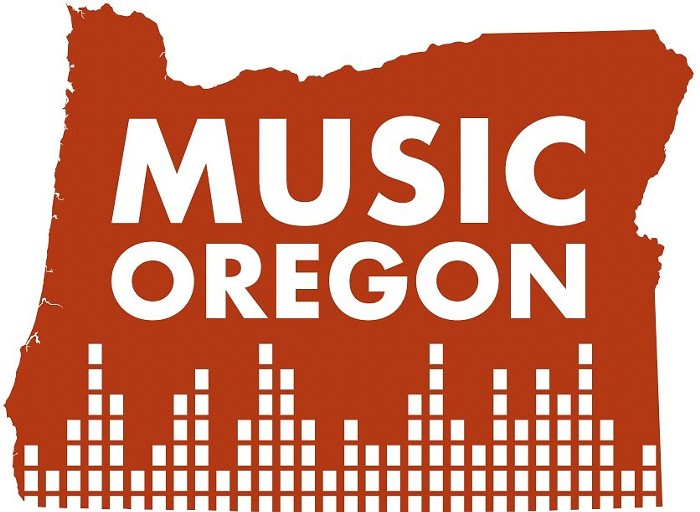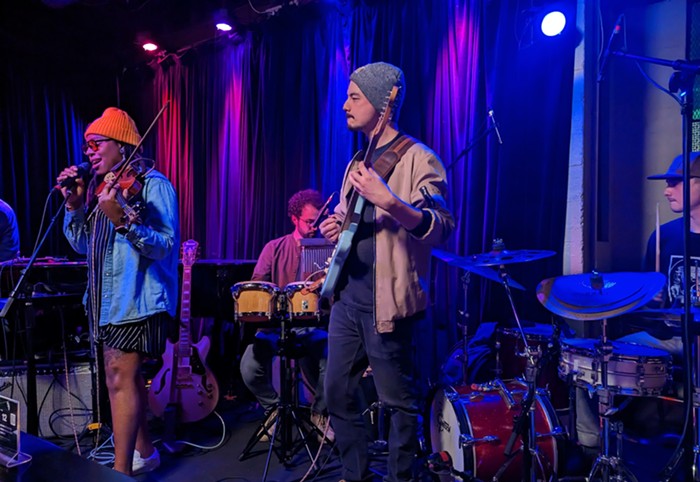But I'm not fucked--not quite"
--"Bled White"
When I heard the awful news that Elliott Smith had killed himself on October 21, it wasn't sadness I felt at first, but exasperation. It was Tuesday evening and the report spread quickly through the bar where I was sitting. No one was crying because no one could process it just yet. Looking at the stool where I last saw him sit, I remembered how stiff he looked, despite the fact that he was hanging out with close friends and laughing occasionally. I thought about his shyness, and wondered if he'd experienced the deep-seated self-loathing that some who've cast themselves in the public eye--driven by compulsion, despite feeling unworthy of the attention--just can't manage to shake. No amount of praise, or in the case of the tremendously talented Smith, adulation, alleviates this discomfort. I hoped that with him, that hadn't been the case.
Several years earlier, when he was still in Heatmiser, I saw Smith play his second solo show at the tiny Portland club Umbra Penumbra. He sat curled over an acoustic guitar singing so quietly, so gracefully, eyes cast to the ground as if he couldn't bear to see the crowd's response. It was one of the single most intimate performances I'll remember. Some time later, after director Gus Van Sant used Smith's songs on the soundtrack of Good Will Hunting and the singer was nominated for an Academy Award (but lost to Celine Dion), he seemed resplendent as he performed in front of a sold-out audience at Seattle's Showbox, and not at all strung out as he was rumored to be. Smith's third (and in my opinion best) album, XO, had yet to be released, but the crowd was treated to a preview of its achingly bittersweet "Waltz #2 (XO)." The moment was magical; the song's refrain, "I'm never gonna know you now / but I'm gonna love you anyhow," cast a new, lovely light on heartbroken resignation.
That was the thing that made Smith's songs so personal and powerful to all of his many fans. Sad as they were, a glimmer of hope was woven within each song. Not long ago in an interview, Smith was asked what makes him so sad. His answer makes his suicide, a constant but not certain threat, all the more exasperating: "I'm not so sad," he explained. "There has to be a certain amount of darkness in my songs for the happiness to matter." Amen.
Finding out the specifics of his final act--that he'd stabbed himself in the heart and had been on medication--the thought crossed my mind that Smith may not have known what he was doing in that desperate moment. He'd kicked drugs, but many patients being treated for depression with medication don't know that, when mixed with even small amounts of alcohol, the chemical combination can cause blackouts and extremely bizarre, sometimes violent, behavior. Then again, bypassing the ribs to spear the heart in one attempt requires precision, and there has been no mention of alcohol in media reports. I guess I wasn't ready to believe he'd committed suicide. I was still buying into his hopeful line, "I'm not fucked--not quite."
Now that he's gone and the words to a new song called "Strung Out Again" have been posted on several websites, I can't stop thinking about a cold morning in 1994 when a friend and I crossed paths with Smith as he and his girlfriend headed towards an old diner that appears in Van Sant's Drugstore Cowboy.
It was bitter cold and the sun was bright and unforgiving. Smith was wearing a striped muffler, and in his greasy shoulder-length hair were two little girl barrettes. A few nights earlier Heatmiser had opened for another band at Club Portland, housed in the Modish Building across the street from a vintage store that would later become Umbra Penumbra. My friend had taken photographs of both bands as they played, and we'd looked them over at breakfast.
Among the snapshots was a particularly unflattering image of Smith, the kind which the subject should by all rights be able to live their entire lives without ever having to see. With great insensitivity, my friend hauled out the photo and thrust it in Smith's face, laughing, expecting the singer to do the same. Her gesture left me speechless, but the flicker of pain that flashed in Smith's eyes didn't go unnoticed. I wanted to curl up and die right there on the sidewalk and his remark, "I hate looking at pictures of myself," sticks with me after all these years because his pained expression showed he really meant it.
I think the reality of his death finally sunk in when I saw the line "Hate my face," repeated throughout those new lyrics posted on the web after he died. Smith didn't know it, but his face was beautiful.
There will be a candlelight vigil to commemorate the memory of Elliott Smith on Sunday, November 2 at 8 pm, to be held at Pioneer Square.


















